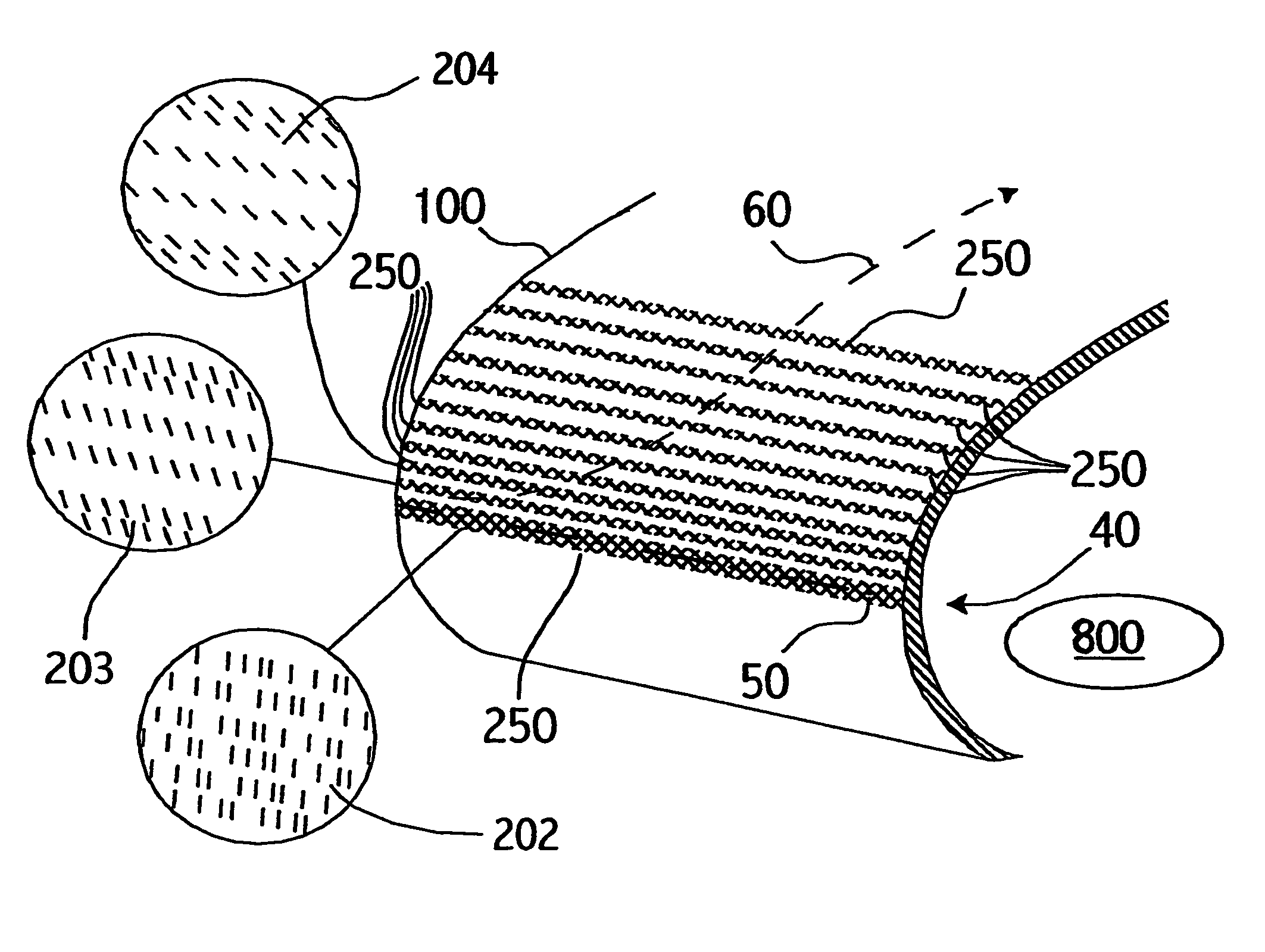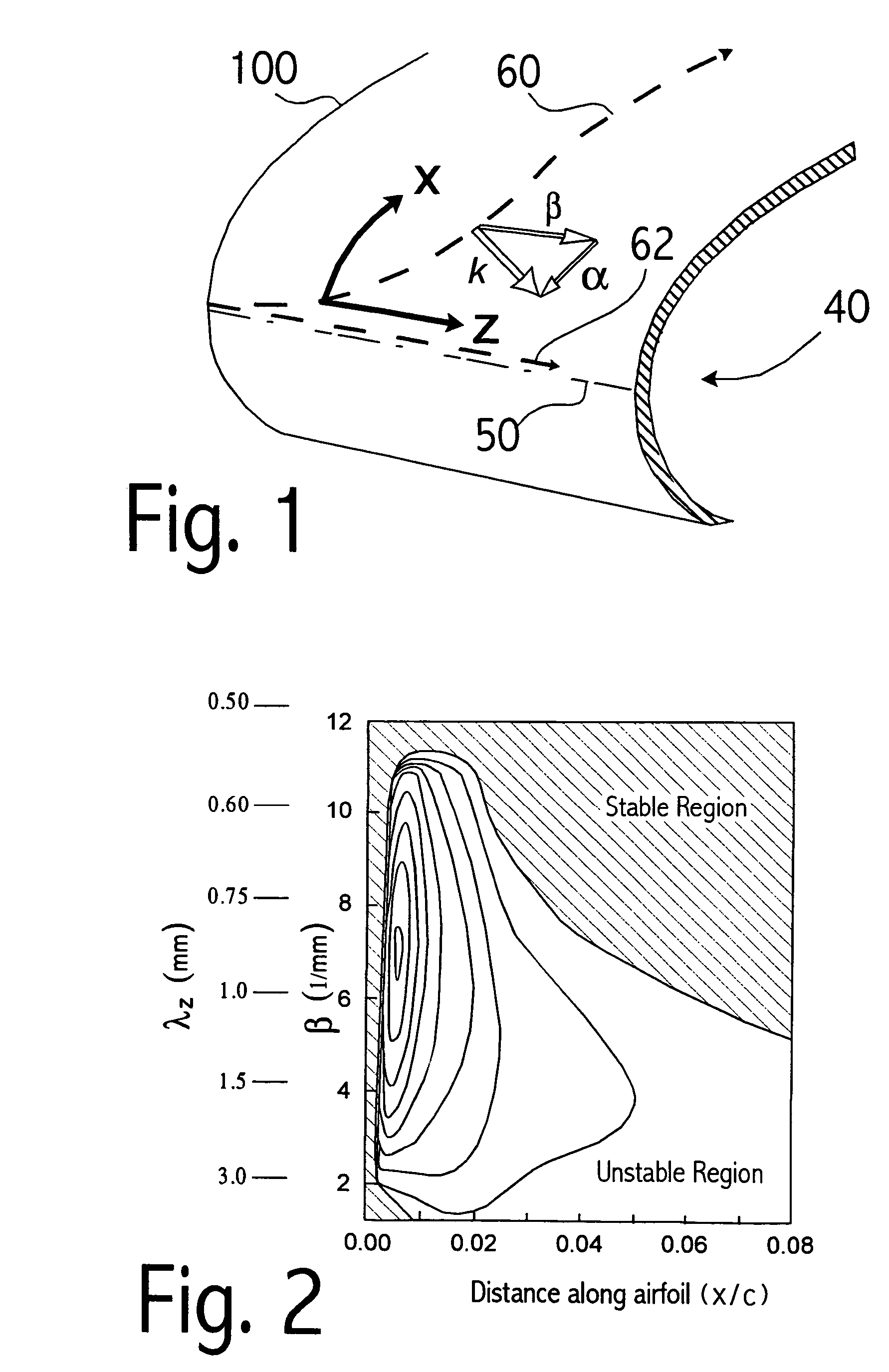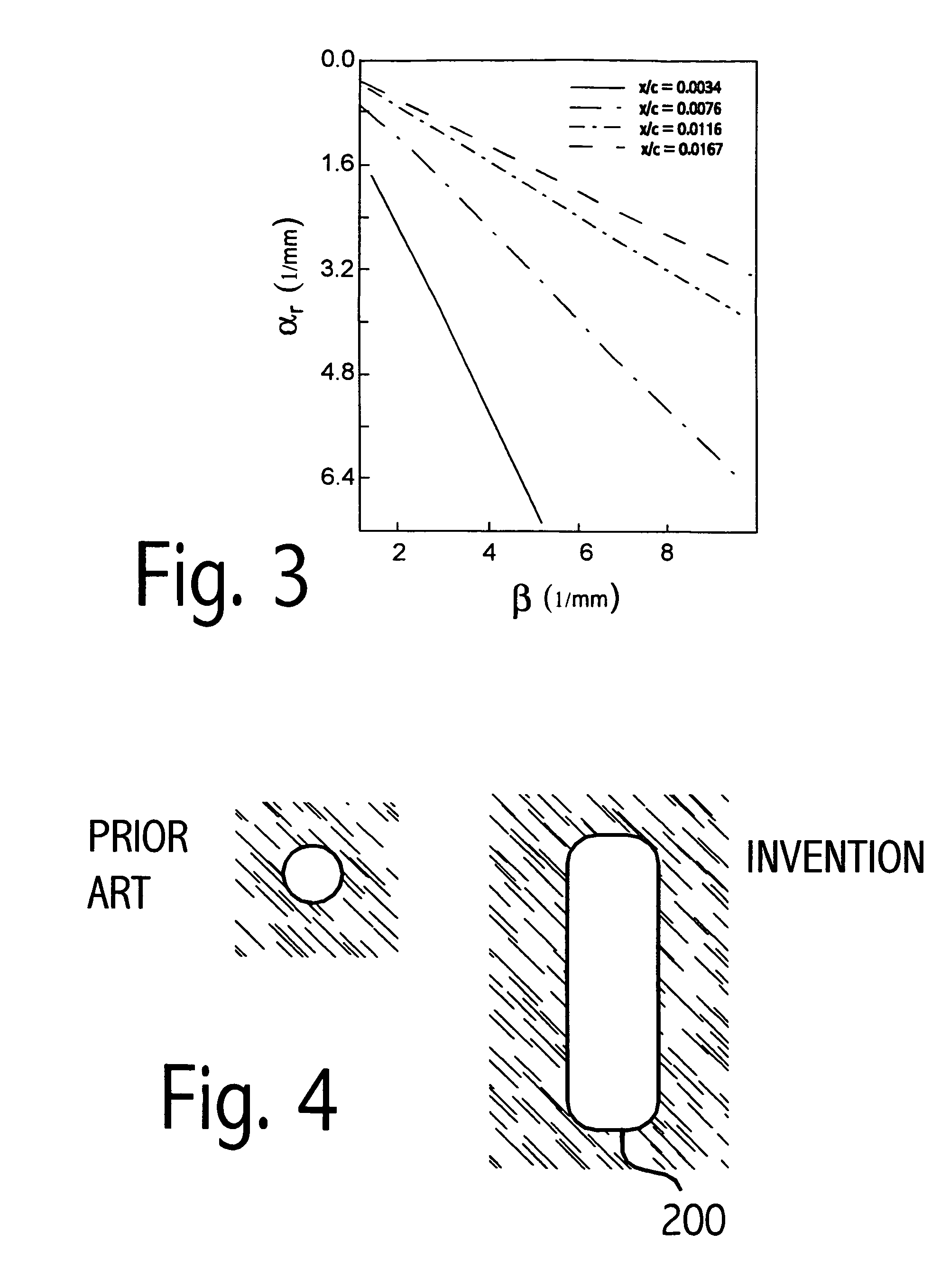Perforated skin structure for laminar-flow systems
a perforated skin and flow system technology, applied in the direction of air flow influencers, fuselages, drag reduction, etc., can solve the problems of inefficient or dysfunctional laminar flow control, flow to undergo immediate and irrecoverable transition to turbulence, and limit the suction amount that can be applied to 3-d boundary layers, etc., to achieve high thermal conductivity and reduce energy
- Summary
- Abstract
- Description
- Claims
- Application Information
AI Technical Summary
Benefits of technology
Problems solved by technology
Method used
Image
Examples
Embodiment Construction
[0051]The invention will now be described in connection with an example relating to an airfoil, such as the vertical fin or the main lifting wing of an aircraft, which represent highly effective and preferred applications of the invention. As a reference for the following discussion, FIG. 1 schematically shows the basic geometry of a representative aerodynamic body 40 such as an airfoil portion of a lifting wing or the like of an aircraft. The aerodynamic body 40 has an outer skin 100 and a leading edge 50. When this aerodynamic body 40, or especially the airfoil 40, is moving through the air, the free-stream airflow impinges onto and grazes along the aerodynamic body 40, thereby creating a boundary layer airflow over the outer skin 100. The aerodynamic body 40 and particularly its leading edge 50 is positioned with a rearward sweep angle relative to the free-stream airflow direction, and consequently, the airflow attaches along the leading edge 50 to form a streamline 62 of rectili...
PUM
 Login to View More
Login to View More Abstract
Description
Claims
Application Information
 Login to View More
Login to View More - R&D
- Intellectual Property
- Life Sciences
- Materials
- Tech Scout
- Unparalleled Data Quality
- Higher Quality Content
- 60% Fewer Hallucinations
Browse by: Latest US Patents, China's latest patents, Technical Efficacy Thesaurus, Application Domain, Technology Topic, Popular Technical Reports.
© 2025 PatSnap. All rights reserved.Legal|Privacy policy|Modern Slavery Act Transparency Statement|Sitemap|About US| Contact US: help@patsnap.com



